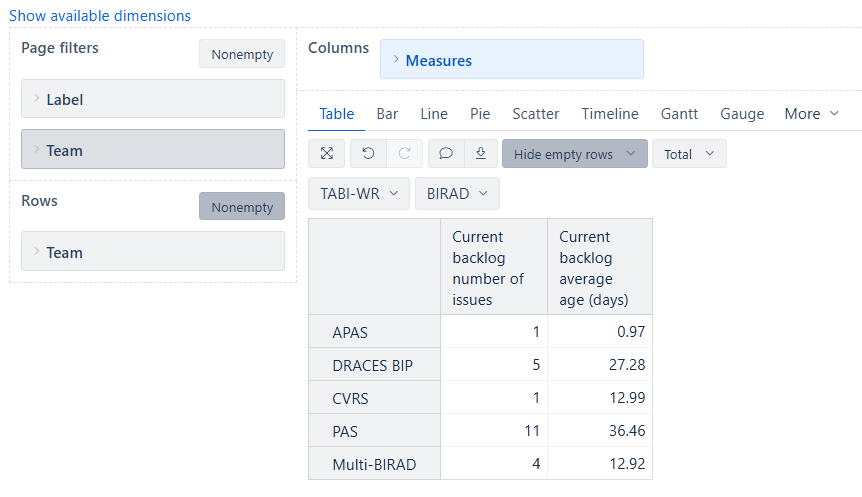Ok, so I’m trying to build something similar to what I saw in Kanban project overview and I was able to get the following…
Which is not bad… However, I use scrum (without sprints)…
But some of the “To Do” are in Sprints… so no longer in the Backlog… How can I improve my calculated measure to show the actual number of issues in the backlog…
Current backlog number of issues calculated measure is the following:
Sum(
-- list the backlog statuses
{[Status].[Draft],
[Status].[To Do]},
-- count valid issues no matter when they were created
([Measures].[Issues created],
[Time].CurrentHierarchy.DefaultMember)
)
Current backlog average age (days) calculated measure is the following:
Avg(Filter(
Descendants([Issue].CurrentMember, [Issue].[Issue]),
-- filter issues currently in backlog statuses: list the backlog statuses
[Measures].[Issue status] MATCHES "To Do|Draft"),
CASE WHEN
-- filter valid issues, no matter when the issue was created
([Measures].[Issues created],
[Time].CurrentHierarchy.DefaultMember) > 0
THEN
-- days since the last status change
DateDiffDays(
[Measures].[Issue status updated date],
Now())
+
-- add time for cases when issue is moved to/from backlog
Sum(
-- list the backlog statuses - same as in MATCHES
{[Transition Status].[To Do],
[Transition Status].[Draft]},
-- total time spent in previous time issue was in the status
([Measures].[Days in transition status],
[Time].CurrentHierarchy.DefaultMember)
)
END
)
Thanks in advance for your help!
